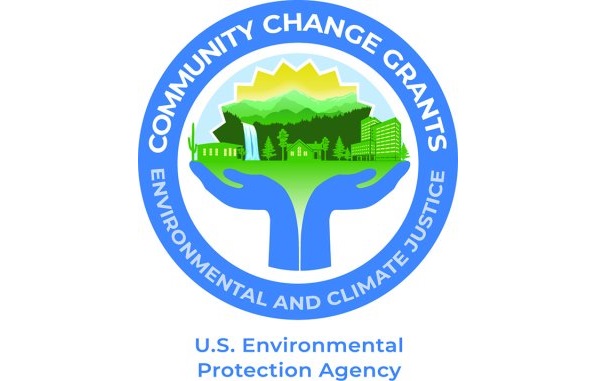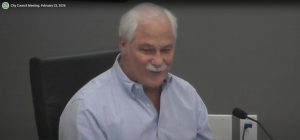Lane County, United Way get $20 million to build out resilience hubs
5 min read
|
Getting your Trinity Audio player ready...
|
from U.S. Environmental Protection Agency and EPA Region 10 Public Affairs Office
Lane County and United Way of Lane County will receive $19,555,386 from the EPA to create a network of community resilience hubs to support residents during environmental emergencies.
The funding will stand up the first six hubs, supporting residents during such ongoing events as wildfires, heat waves, ice storms, flooding, and air quality alerts.
Community and recreation facilities—in partnership with Florence, Veneta, Cottage Grove, Bethel School District, and Willamalane Park District—will receive building equipment retrofits, with supplies prepositioned in each new hub.
“We are thrilled to be one of the first communities to be selected for the EPA Community Change Grant,” said Commissioner Laurie Trieger, chair of the Lane County Board of Commissioners. “This $20 million investment enables us to establish a resilience hub network across Lane County to directly benefit residents, metro and rural alike, on good days and bad.”
The funding also will build the capacity of local organizations providing resilience services; train medical and non-medical volunteers to help in emergencies; and equip the hubs with adequate supplies.
They will work to expand and improve the county’s emergency response planning and implementation network to support a whole community response during and after a severe event. The project also will assess the feasibility of installing solar and energy storage on the resilience hubs.
Lane County’s grant application is among 21 applications selected to receive funding to help disadvantaged communities tackle environmental and climate justice challenges through projects that reduce pollution, increase community climate resilience, and build community capacity.
The EPA is proud to support environmental justice and more equitable communities, said Regional Administrator Casey Sixkiller. “This funding from the Biden-Harris Administration’s Inflation Reduction Act will help mitigate impacts from wildfire smoke and heat events. By funding these community-driven solutions, we are supporting local environmental priorities that will make a meaningful difference in supporting public health and environmental quality.”
“This $19 million investment from the EPA’s Community Change Grants Program is critical to supporting disaster and weather resilience in Lane County,” said Rep.Val Hoyle. “This means Lane County and United Way of Lane County will have more resources to build out their volunteer response during emergencies, leading to stronger relief efforts.”
“Ensuring Oregonians and communities across the region are safe and prepared when disasters strike is critical,” said Sen. Jeff Merkley. “This EPA funding for Lane County and the United Way of Lane County to realize a network of resilience hubs—complete with training, equipment, and more—will prove essential for community members during weather events from devastating wildfires to extreme heat. It’s climate-smart investments from the Inflation Reduction Act like this that will help our local governments and agencies save lives during the worst conditions.”
“This news is especially timely and relevant, given the wildfires burning in Lane County and the evacuation alerts those blazes are generating in multiple communities,” said Sen. Ron Wyden. “I’m glad the Inflation Reduction Act that I worked to pass is producing these crucial investments to help Lane County keep people safe during wildfires and other emergencies that threaten lives and properties.”
On July 25, EPA announced more than $325 million for 21 selected applications to help disadvantaged communities tackle environmental and climate justice challenges through projects that reduce pollution, increase community climate resilience and build community capacity.
Made possible by President Biden’s Inflation Reduction Act, the Community Change Grants Program is the single largest investment in environmental and climate justice in history.
The funding announcement July 25 is the first tranche of nearly $2 billion from the program that was designed based on community input to award grants on a rolling basis.
Track I of the program, Community-Driven Investments for Change, is expected to award approximately $2 billion for 150 projects for $10 million to $20 million each. Lane County’s project is among the 17 Track I applicants implementing community-scale projects to address environmental and climate justice challenges:
- Texas A&M University and Black Belt Unincorporated Wastewater Program (Wilcox/Hale/Lowndes Counties, Alabama)
- City of Bakersfield and Building Healthy Communities Kern (Bakersfield, California)
- La Familia Counseling Center, Inc. and Community Resource Project (Sacramento, California)
- Coalition for Responsible Community Development and Los Angeles Trade -Technical College (Los Angeles, California)
- The San Diego Foundation and The Environmental Health Coalition (San Diego, California)
- Day One and Active SGV (San Gabriel Valley, California)
- City of Pocatello and Portneuf Greenway Foundation (Pocatello, Idaho)
- Dillard University and United Way of Southeast Louisiana (Southeast Louisiana)
- City of Springfield and Public Health Institute of Western Massachusetts (Springfield, Massachusetts)
- Midwest Tribal Energy Resources Association and Grid Alternatives (Michigan, Minnesota, Wisconsin)
- The MetroHealth System and Community Housing Solutions (Cleveland, Ohio)
- Lane County Oregon and United Way of Lane County (Lane County, Oregon)
- Pittsburgh Conservation Corps and PowerCorpsPHL (Pittsburgh/Philadelphia, Pennsylvania)
- The Trust for Public Land and City of Chattanooga (Chattanooga, Tennessee)
- City of Houston and Black United Fund of Texas (Houston, Texas)
- Corporation of Gonzaga University and Spokane Neighborhood Action Partners (Spokane, Washington)
- National Housing Trust and D.C. Children’s Law Center (Washington, D.C.)
Track II, Meaningful Engagement for Equitable Governance, is expected to award approximately $40 million for 20 projects for $1 million to $3 million each. Four Track II applicants will facilitate individual and community participation in governmental decision-making processes:
- Insight Garden Program and Ella Baker Center for Human Rights (multiple locations in California)
- The Trust for Public Land and See You At The Top (Cleveland, Ohio)
- Special Service for Groups, Inc. and Center for Asian Americans United for Self Empowerment (Los Angeles, California)
- Bronx River Alliance, Inc. and Youth Ministries for Peace and Justice (Bronx County, New York)
Of the 21 selections, three are for target investment areas identified in the Notice of Funding Opportunity (NOFO). Target investment area funding is intended to ensure that Community Change Grants Program funding is directed towards disadvantaged communities with unique circumstances, geography, and needs. For more, see the full listing of the initial 21 organizations receiving a CCGP grant.
As the Community Change Grants Program is still accepting applications through Nov. 21, 2024, EPA encourages applicants to submit applications as soon as they completely meet the NOFO requirements. EPA will be making additional selections on a rolling basis for the remainder of 2024. EPA also encourages interested applicants to apply for technical assistance as soon as possible, as the last day to request new technical assistance is Aug. 16, 2024.
For up-to-date information about the NOFO, including information on the webinars, subscribe to the Office of Environmental Justice and External Civil Rights’ listserv by sending a blank email to: join-epa-ej@lists.epa.gov.




